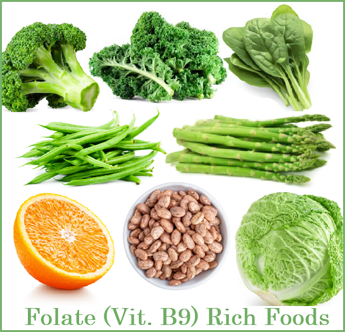What Is Folic Acid and Folate?
Folate occurs naturally in many foods like green leafy vegetables, beans, and citrus fruits.
Folic acid is the synthetic version added to fortified foods such as wheat flour, pasta, cornmeal, rice, and other grain products in the United States.
This fortification is not universal, which makes folate deficiency more common in countries that don’t fortify grain products.

Folic Acid: A Key B Vitamin to Lower Stroke Risk in People with High Blood Pressure
A recent study published in the Journal of the American Medical Association (JAMA) focused on more than 20,000 adults in China with high blood pressure who had never experienced a stroke or heart attack.
Participants who took folic acid supplements along with the blood-pressure medicine had a significantly lower risk of stroke over a 4½-year period compared to those who took the medicine alone.
This finding further strengthens the link between folic acid and cardiovascular protection.
Folate, along with other B vitamins, helps the body break down homocysteine—an amino acid that can damage artery walls. High levels of homocysteine are associated with an increased risk of stroke and heart attack.
Other Important Functions of Folic Acid
-
Folic acid plays a vital role in many essential body functions. It helps in the formation of DNA and RNA and supports protein metabolism, which is crucial for cell growth and repair.
-
This B vitamin is also necessary for the production of healthy red blood cells, helping to prevent certain types of anemia.
-
Its role becomes even more critical during periods of rapid growth, such as pregnancy and fetal development, making adequate folate intake essential for both maternal and baby health.
Folic Acid Intake in the U.S. : Are You Getting Enough?
In the United States, the average person consumes only 100 to 150 micrograms (mcg) of folic acid daily from fortified grains – just about one-quarter of the recommended daily intake of 400 mcg.
While folate deficiency is rare thanks to its presence in a variety of foods, certain groups may still be at risk of low folate levels:
-
People with alcoholism – Excessive alcohol consumption can interfere with the body’s ability to absorb and store folate.
-
Pregnant women – Folate needs increase significantly during pregnancy, as the vitamin is essential for healthy fetal cell growth and development.
-
Individuals with digestive disorders or intestinal surgeries – Conditions such as celiac disease or inflammatory bowel disease (IBD) can reduce folate absorption.
-
Communities relying on non-fortified masa (corn flour) – Especially in the Southwest U.S., where corn flour products are a dietary staple.
-
People on gluten-free diets – Those avoiding wheat-based products may miss out on fortified grains, leading to lower folic acid intake.
How to Boost Your Folate Intake
To ensure optimal levels of folate and better cardiovascular protection, aim to:
-
Eat plenty of green leafy vegetables, beans, and citrus fruits daily.
-
Include fortified grains such as pasta, rice, and bread in your diet if suitable.
-
Talk to your healthcare provider about folic acid supplements, especially if you have high blood pressure or other risk factors.
Bottom Line
Folic acid isn’t just a nutrient; it is a simple, effective way to protect your heart and brain health. For people with high blood pressure, pairing folic acid intake—through diet or supplements—with prescribed medication may lower the risk of stroke and promote long-term cardiovascular wellness.
Medical Disclaimer.
Read further on:
≺≺ What foods should people with high blood pressure avoid?
≺≺ Why Vitamin B12 Is Important for Your Health?
≺≺ What type of exercise is best for lowering my blood sugar?
≺≺ What foods and vitamins are good for your skin?
≺≺ What eating strategies work best for losing weight long term?
≺≺ What are the top three minerals you can take to boost memory?
≺≺ Why is regular table salt considered unhealthy?
≺≺ What makes Himalayan salt different from regular table salt?
≺≺ What is wrong with ONE-A-DAY Vitamins?
≺≺ What health problems are linked to consuming corn syrup?
≺≺ What food is most effective for moderating blood sugar?
≺≺ How Do Sugary Meals and Beverages Harm Dental Health?
≺≺ What Is the Ketogenic Diet? Is the Keto Diet Right for Everyone?
≺≺ What is the Okinawan diet? What is the secret behind Okinawan long life expectancy?
≺≺ EWG’s- The Clean Fifteen: Fruits and Vegetables with the Lowest Pesticide Levels.
≺≺ What are antioxidants? How antioxidants in the fruits and vegetables help in preventing cancers and diseases?
≺≺ How can I reduce the risk of cancer-causing chemicals when cooking or grilling meat?
≺≺ What happens to my blood vessels when I gain weight?
≻≻ Watch this page for more such informative articles on Health, Nutrition, and Wellness.
≻≻-Back to Home page.
Further reading (External Links opens in new window):
≺≺- Harvard Health Publishing – Folic acid, a B vitamin, lowers stroke risk in people with high blood pressure.
≺≺- Cleveland Clinic – Top Benefits of Vitamin B9 (Folate) and Folic Acid.

